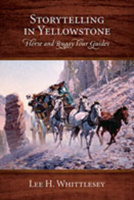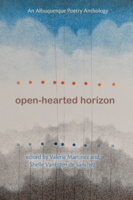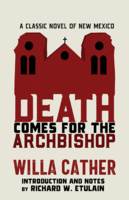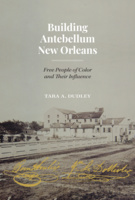Storytelling in Yellowstone
Horse and Buggy Tour Guides
Whittlesey shares tales of "the great Geyserland" as told by the earliest tour guides of America's first and most unique national park.
Open-Hearted Horizon
An Albuquerque Poetry Anthology
Multimodal Composing and Writing Transfer
Multimodal Composing and Writing Transfer explores transfer across various contexts of multimodal composing, extending the early conversations connecting multimodality to writing.
Judging Sex Work
Bedford and the Attenuation of Rights
Judging Sex Work argues that a decision widely considered to be a victory for social justice weakened sex workers’ rights far more than it strengthened them.
Environmental Preservation and the Grey Cliffs Conflict
Negotiating Common Narratives, Values, and Ethos
Based on a qualitative, ethnographic, observational case study approach, Environmental Preservation and the Grey Cliffs Conflict presents an analysis of the conflict negotiation between the U.S. Army Corps of Engineers and a local community that struggled to address a deteriorating Corps-managed recreational lake area in Tennessee known as “Grey Cliffs.”
Death Comes for the Archbishop
A Classic Novel of New Mexico
Sex in Canada
The Who, Why, When, and How of Getting Down Up North
Sex in Canada offers a unique, definitive, and surprising exploration of sex and sexuality among Canadians.
Dancing the Afrofuture
Hula, Hip-Hop, and the Dunham Legacy
In this memoir, Halifu Osumare reflects on how her career as a dancer and activist influenced her growth as a scholar writing the stories of global hip-hop and Black culture.
The Essential Writings of Robert A. Hill
Bringing together Robert A. Hill’s most important writings for the first time, this collection serves as a testament to Hill’s legacy as a pioneering scholar, activist, archive builder, and editor who shaped the study of Garveyism and pan-Africanism.
King of the Gunrunners
How a Philadelphia Fruit Importer Inspired a Revolution and Provoked the Spanish-American War
How a boisterous fruit importer aided a revolution that triggered a war
Mesquite Pods to Mezcal
10,000 Years of Oaxacan Cuisines
New case studies documenting ten thousand years of cuisines across the cultures of Oaxaca, Mexico, from the earliest gathered plants, such as guajes, to the contemporary production of tejate and its health implications.
Human Transit, Revised Edition
How Clearer Thinking about Public Transit Can Enrich Our Communities and Our Lives
The first edition of Human Transit, published in 2011, has become a classic for professionals, advocates, and interested citizens.
Walker has updated and expanded the book to deepen its explanations. New topics include the problem with specialization; the role of flexible or “demand response” services; how to know when to redesign your network; and responding to tech-industry claims that transit will soon be obsolete. Finally, he has also added a major new section exploring the idea of access to opportunity as a core measure of transit’s success.
No other book explains the basic principles of public transit in such lively and accessible prose, all based on a respect for your right to form your own opinion. Walker’s goal is not to make you share his values, but to give you the tools to clarify and advocate for yours.
Houston and the Permanence of Segregation
An Afropessimist Approach to Urban History
A history of racism and segregation in twentieth-century Houston and beyond.
Elephant Trees, Copales, and Cuajiotes
A Natural History of Bursera
Predominantly native to the U.S. Southwest, Mexico, and the Caribbean, the various species of the genus Bursera have been prized throughout history for their distinctive aromas, medicinal properties, and workable woods. Highlighting its importance and impact within the desert Southwest and Mexico, this volume will be the first book to describe the ecology, evolution, ethnobotany, and peculiar chemistry of the many species of Bursera. Written in an engaging style, enhanced with two hundred color photographs, and complete with a compendium of species descriptions, this book will be an essential reference on a significant North American plant.
Building Antebellum New Orleans
Free People of Color and Their Influence
Border Policing
A History of Enforcement and Evasion in North America
Violence and Inequality
An Archaeological History
Violence and Inequality explores the deep-time archaeological relationship between violence and inequality, focusing on prehistoric archaeology’s contribution to the understanding of the human dynamics among coercive force, aggression, and the state.
Roxy and Coco
A Novel
Roxy and Coco, sisters and glamorous harpies (mythical bird women), work to save the world by stopping child abuse, while also trying to evade capture. For readers of Neil Gaiman and Karen Russell.



















